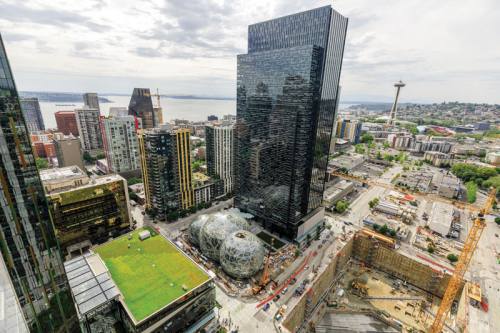Amazon Inc. has chosen New York City and Arlington, Virginia, to accommodate its second headquarters, ending the efforts of Dallas-Fort Worth area cities—including Richardson—that had hoped to attract the tech giant.
Amazon will invest $5 billion and create more than 50,000 jobs across both east-coast cities, according to a Tuesday news release. The company also announced it will establish a business operations center in Nashville, Tennessee, which will result in more than 5,000 jobs.
The major online retailer announced the search for its second headquarters in September 2017 and asked cities to team up to submit one proposal per metropolitan statistical area.
The Dallas Regional Chamber partnered with the Fort Worth Chamber of Commerce in October 2017 to collect a list of sites to present to Amazon, according to a Dallas Regional Chamber news release. Amazon received 238 proposals across the country.
Richardson was among the cities that sought to house Amazon’s new headquarters. The city's bid proposed a 100-acre swath of land north of the University of Texas at Dallas as the site for HQ2.
“We did some very out-of-the box things to exceed the requirements,” said Bill Sproull, president and CEO of the Richardson Chamber of Commerce.
Among those innovative ideas was to create a seamless workforce pipeline that would supply prospective employees to Amazon from not only UT Dallas, but also Plano and Richardson ISDs as well as Collin and Richland colleges.
"We certainly got great buy-in from UTD. ... There was a real commitment to increasing computer science graduates at both the undergraduate and graduate levels in disciplines [Amazon] specifically wanted," Sproull said.
As part of the site plan submitted to Amazon, Richardson also guaranteed mass-transit rail service between Richardson and DFW airport in the form of
the future Dallas Area Rapid Transit Cotton Belt line. And while Richardson was not ultimately chosen as the site for HQ2, the value of the Cotton Belt is not undermined by Amazon's rejection of the city's bid.
And while Sproull is no stranger to economic development bids—the HQ2 project is the third time he has participated in a national site-selection process—the process of vying for large companies is one that he says provides an city with "residual benefits," whether it wins or loses.
"The takeaway is that these kind of really intense, data-driven, big projects really hone your skills," Sproull said. "They make you a better competitor because you have to stretch yourself; you have to generate new kinds of data, new kinds of partnerships; you have to think outside the box."





